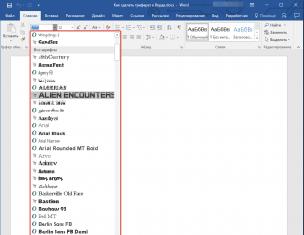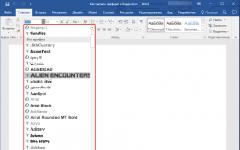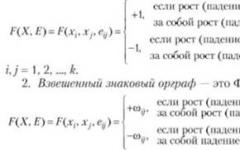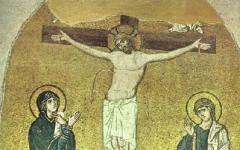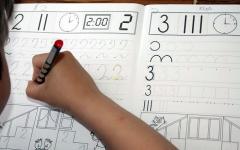Притяжательные местоимения мы используем в своей речи каждый день. Это моя кошка, их собака, ее порция мороженого, его портфель, их дочка… Практически в каждом предложении мы увидим местоимения. Поскольку теория на эту тему уже изучена, сегодня мы приступим непосредственно к практике, чтобы закрепить полученные знания. Помните: изучая притяжательные местоимения в английском языке упражнения помогут вам запомнить теорию гораздо эффективнее, чем даже сотня повторений. Поэтому сразу к делу! Нас ждут интересные задания, которые будут достаточно легкими даже для детей.
Упражнения на притяжательные местоимения сравнительно легкие. А если сначала повторить основные тонкости перевода, то работа над заданиями будет совсем легкой. Итак, к вашему вниманию таблицы с притяжательными местоимениями, которые расставят все особенности перевода по полочкам.
Первая форма притяжательных местоимений
| My | Мой, мое, мои, моя |
| His | Его |
| Her | Ее |
| Its | Его, ее |
| Our | Наш, наше, наша, наши |
| Your | |
| Their | Их |
Вторая форма притяжательных местоимений
| Mine | Мой, мое, мои, моя |
| His | Его |
| Hers | Ее |
| Ours | Наш, наше, наша, наши |
| Yours | Твой, твои, твоя, твое; ваш, ваша, ваше, ваши |
| Theirs | Их |
Как вы уже знаете, несмотря на то, что притяжательные местоимения (Possessive Pronouns) имеют две формы, отвечают все они на один и тот же вопрос => whose? То есть Чей? Чья? Чье? Чьи? При этом хотим напомнить, что абсолютная форма притяжательных местоимений отличается от первой (атрибутивной) как по правописанию, так и по роли в предложении: после абсолютной формы существительные не следуют , они отсутствуют.
Примеры :
That is his cup => Это его чашка (притяжательное местоимение в атрибутивной форме his + существительное cup )
Но! That cup is mine => Эта чашка – моя (притяжательное местоимение в абсолютной форме mine, после которого не нужно ставить существительное).
Итак, когда теорию мы повторили, можем смело приступать к упражнениям. Теперь вы сможете проверить свои знания на практике. Вперед!
Упражнение 1. (притяжательные местоимения)
Правильно расставьте притяжательные местоимения, выбрав из предложенных в атрибутивной форме (my, his, her, its, our, your, their):
my his her our their
Book but she denied to return it to him.
I saw that picture in
his our its her their
House but don’t remember whether it was her property or just a gift.
I forgot my glasses in
your my their her our
Car. Probably they will return it to me tomorrow.
The teacher was listening to
my their your our its
Answer quite patiently but it was really silly one.
His Its Their Your Her
Jacket I found in
her his my their our
My Your His Our Their
Parents were absent while
his my their your our
Were at school.
Обратите внимание! В этих предложениях притяжательные местоимения можно менять местами. Например, в последнем предложении Possessive Pronouns можно поменять местами без ущерба для контекста. А вот, например, в третьем предложении выбор будет только один, поскольку есть слово-идентификатор they.
Продолжаем употреблять притяжательные местоимения
Упражнение 2. (притяжательные местоимения)
Напишите правильный вариант из представленных в скобках:
My grandfather has a cat. colour is warm red.
She saw dress washing in washing machine. The dress in washing machine was (her, hers, its).
I saw him wearing best shirt. It suits him so much!
cat sleeps when it has done all insidious things.
They live in a big city. city is so nice I would like to visit it this summer!
I like dress more than .
I have a rabbit. The rabbit is .
plane is a luxury one as well as pleasure boat.
My sister has a doll. doll is very expensive.
Her brother is very naughty. Only trousers costs 5 times more than my the most expensive dress!
Упражнение 3. (притяжательные местоимения)
Расставьте правильно местоимения в атрибутивной и абсолютной форме:
I have a dress. The dress is .
Dress is very nice.
Her friend has a new lipstick. The new lipstick is .
Lipstick is of dark wine colour.
This shirt is .
Shirt is from the newest collection.
The business is
И готовы приступить к упражнениям. Все упражнения на Possesive Pronouns идут с возрастанием сложности, поэтому первые из них подойдут даже для детей. Ответы к упражнениям найдете, по традиции, в конце статьи.
Possessive pronouns exercises.
Упражнение 1. Complete the sentences. Use the words from the box.
- This is my mum. _________ name"s Jess.
- These are my sisters. ________ names are Mary and Dina.
- These are my parents. _________ names are Tanya and Bob
- This is my cousin. _________ name"s Helen.
- This is my cousin. ______ name"s Fred
- These are my sisters. _______ names are Tina and Nina.
- This is my aunt. _______ name"s Pam.
Упражнение 2. What is Molly Adamauer saying? Add my, your, his, her, our or their.
First name is Molly. _____family name is Adamauer. What about you? What"s _____ first name? And what"s ______ family name? I"m married. You can see _____ husband in the picture. ______ name is Aisek. We"ve got one son and one daughter. ______ son is 21. _____ name is Nickolas. _______ daughter is 24. ______ name is Emy. Emy is married. _____ husband"s name is Bred. Emy and Bred have got two children. ______ names are Kevin and Evi.
Упражнение 3. Circle the correct word.
This is Michael. This is his/her family. These are my / his parents. This is her / their house. This is your / their pet. This is her / its ball.
Absolute possessive pronouns exercises.
Упражнение 4. Insert absolute possessive pronouns.
Jason: Whose sunglasses are these?
Kate They"re Amy"s, I think. Yes, they"re (1) _______.
Paul: Whose baseball cap is this?
Amy: That"s (2) ______ too! Thanks.
Kate: Ugh! Whose dirty towel is this?
Jason: Ask Paul. I think it"s (3) __________ .
Paul: Yes, it is. Thanks. You"ve got a great T-shirt, Amy!
Kate: Thanks. I borrowed it from my big sister. So it"s (4) __________ really.
Jason: What about this umbrella?
Paul: Don"t be silly, Jason! You brought it, so it must be (5) __________.
Kate: Does this beach ball belong to us?
Jason: No, it isn"t (6) __________. Those kids over there were looking for a ball, so it"s (7) _________ probably.
Притяжательные местоимения. Mixed exercises.
Упражнение 5. Выберите из подчёркнутых слов правильные притяжательные местоимения.
- Is this yours / your daughter?
- It"s theirs / their problem, not our/ours.
- It"s a good idea of your / yours to go to the bar tonight.
- Are these her / hers shoes?
- We"re going swimming with some friends of our/ours.
- Is it yours / your article about spiders? -No, it"s not my / mine.
- We know their / theirs address but they don"t know our / ours.
- That"s not my / mine wallet. Mine / my is black.
- His cottage is bigger than her / hers but her / hers is nicer.
- My / mine parents live in Vitebsk region, and your / yours?
Упражнение 6. Вставьте нужные по смыслу выражения с (own).
- He really loves to have __________ car.
- I hope to set up _________ business one day
- Roman Abramovich had a comfortable plane of __________.
- We don"t need your tools, we"ve taken _________ drill.
- They invested the money of__________ in this project.
- She"s always smoking our cigarettes! Why doesn"t she buy __________.
- I have always dreamt to have a room of___________.
- Liza has left ____________ child in infant home!
- The house was built by ___________great-grandfather. We"re proud of this fact.
- We can believe them. _________experiment is a good proof for us.
Упражнение 7. Complete the conversation with the correct possessive pronouns.
Tim: Whose CD is that?
Jenny: The Britney Spears CD? It"s (1) _______ . It"s (2) _______ favourite CD.
Tim: It"s (3) _________ too. Is this Kylie Minogue CD (4) ________ too?
Jenny: No, it"s (5) ________ sister’s. And those on the table are (6) ________ too.
Tim: There"s a Beatles CD on the table. Does she like The Beatles?
Jenny: No, she doesn"t. But (7) _____ parents love them. All the Beatles CDs are (8) ______.
Tim: Can I borrow this one, or is it (9) _________ sister"s?
Jenny No, it isn"t (10) _________. I"ll have to ask (11) _____ brother. That CD is (12) _______.
Ответы к упражнениям на притяжательные местоимения.
1 her, 2 their, 3 their, 4 her, 5 his, 6 their, 7 her
My, my, your, your, my, his, our, his, our, her, her, their
His, his, their, their, its
1 hers, 2 mine, 3 his, 4 hers, 5 yours, 6 ours, 7 theirs
1 your, 2 their / ours, 3 yours, 4 her, 5 ours, 6 your / mine, 7 their / ours, 8 my / mine, 9 hers / hers 10 my / yours
1 his own, 2 my own, 3 his own, 4 our own, 5 their own, 6 her own, 7 my own, 8 her own, 9 our own, 10 their own или our own
1 mine, 2 my, 3 mine, 4 yours, 5 my, 6 hers, 7 my или our, 8 theirs, 9 your, 10 hers, 11 my, 12 his
1. Fill the gaps with personal or reflexive pronouns.
1 . He is quit right, I agree with … completely.2 . I looked at … in the mirror and left the house in a very good mood.
3 . “Who is it?” - “It’s … may I come in?”
4 . Mr. Lloyds is very fat … weighs over a hundred kilos?
5 . … introduced his wife to the quests.
6 . Where shall … meet, Bob?
7 . James took the book and opened ….
8 . We don’t dress … for dinner here.
9 . I taught … to play the quitar.
10 . Selfish people only care about …
2. Put “some”, “any” or “no”.
1 . He does his homework without … difficulty.2 . This yeas all the apples are red, we are going out this morning to pick …
3 . I’d like … water, please.
4 . There weren’t … tomatoes left.
5 . I won’t go with you. I have … free time.
6 . There aren’t … students at the moment.
7 . Sorry, I have … matches.
8 . Do you have … money?
9 . The box was empty. There was apples in it.
10 . Pour me … milk, please.
3. Translate the sentences into English.
1 . Она ничего не сказала.2 . Он посмотрел на нее с удивлением.
3 . Она не захотела пойти с ним.
4 . Я попросил его налить немного молока.
5 . Когда ему было 3 года, он мог сам одеваться.
6 . Простите, но у меня нет времени.
7 . Какая красивая картина! Она твоя?
8 . Возьми свою чашку. Эта чашка - моя.
9 . Его мнение отличается от моего.
10 . Сегодня вечером придет кто-нибудь?
4. Complete the sentences using possessive pronouns (my, your, his, her, our, their).
1 . I left … car in the garage.2 . Mary hung … coat on the peg.
3 . Jack had … hair cut.
4 . Neil and David ate … supper.
5 . I hope you enjoy … holiday.
6 . We’ll invite you round to … house sometime and complete these by addig a possessive with own.
7 . You must make up … own mind.
8 . The children had to cook … own supper.
9 . Bill borrowed Jenny’s car … own can was being repaired.
10 . I’ll bring … own sheets and towels.
11 . Every dog had … own special basket to sleep in.
12 . You should do … own washing up.
Правильные ответы:
1. Заполните пропуски личными или возвратными местоимениями.
1. him | 2. myself | 3. me | 4. he | 5. he | 6. we | 7. it | 8. ourselves | 9. myself | 10. themselves2. Поставьте “some”, “any” или “no”.
1. any | 2. some | 3. some | 4. any | 5. no | 6. any | 7. no | 8. any | 9. no | 10. some3. Переведите предложения на английский язык.
1. She said nothing.2. He looked at her with surprise.
3. She didn’t want to go with him.
4. I asked him to pour some milk.
5. When he was 3 years old, he could dress him self.
6. Sorry, but I don’t have any time.
7. What a nice picture! Is it yours?
8. Take your cup. This one is mine.
9. His opinion differs from mine.
10. Will anybody come tonight?


